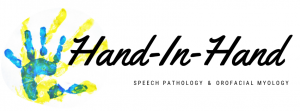Communication development takes a new direction once a child begins school, as they begin to read and write. Literacy (reading and writing) is all about learning to read, but the goal of literacy is reading to learn. Reading opens up a world of learning to children and is a crucial part of communication development.
Before looking at these milestones, you should read this.
By 6 years your child should:
Listening and Understanding
- Understand many different concepts for time (eg. today, tomorrow, days of week, last week), position (eg. first, middle, last), comparatives (eg. bigger) and superlatives (eg. biggest)
- Understand opposites (eg. large-small)
- Follow 3 step instructions, eg. “Go to your room, get your bag, then meet me at the front door”.
Speech Sounds and Talking
- Be able to be understood 100% of the time by strangers, even if still has trouble with the sounds th and v.
- Talk in long, complex sentences and tell stories
- Identify the first sound in a spoken word
- Identify whether 2 words rhyme
- Use thousands of words
- Answer a variety of questions, eg. “what”, “who”, “where”, “why”, “how”, “when”, and “how many”
Social Skills
- Ask questions for information
- Negotiate solutions to problems
- Develop judgement of right versus wrong and fair versus unfair
Literacy *
- Begin to match sounds with letters
- Read from left to write
- Identify what is a letter versus a word
- Retell simple stories
- Identify some words
- Print name
*literacy skills around this age depend on the amount of teaching the child has had (eg. number of years of schooling)
Play
- Cooperate with others – eg. negotiating, assigning roles and playing fairly
- Engage in well-organised play – eg. board games and card games
- Engage in play which includes themes never personally experienced (e.g. going to space)
For more information
- What is a Speech Pathologst?
- Speech Tools Services
- Learning Two Languages by ASHA
- Find a Speech Pathologist with Speech Pathology Australia







